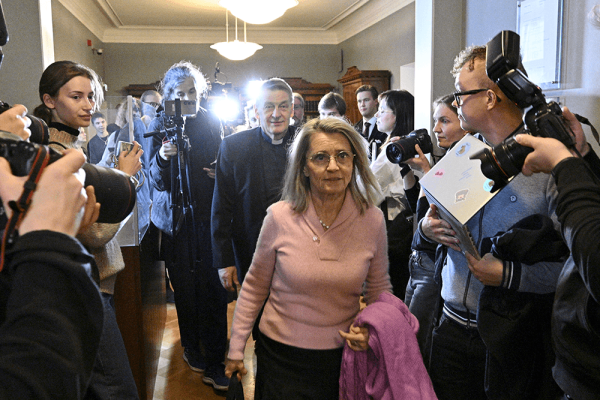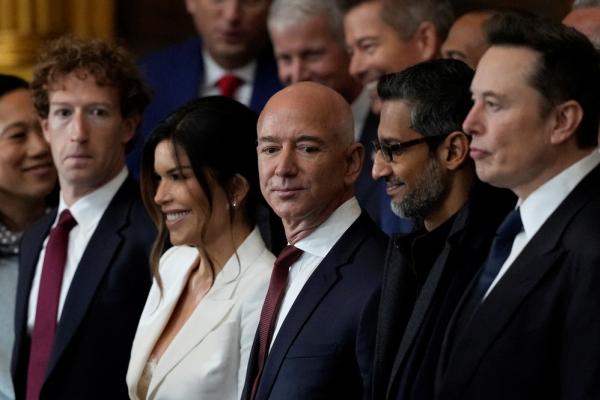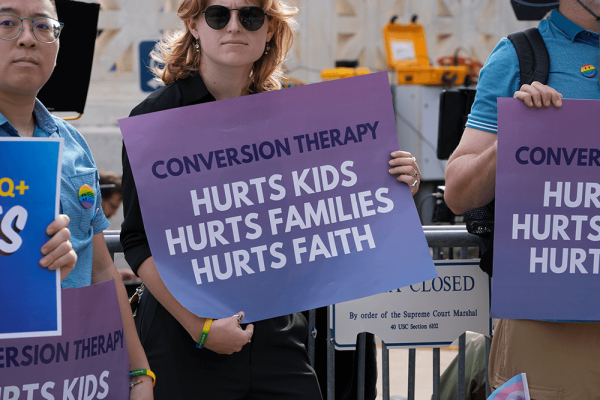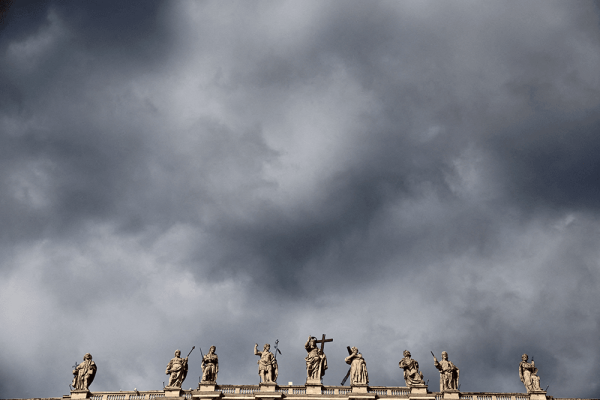On Thursday, Oct. 30, Finnish politician Päivi Räsänen had her day in court. Again.
Räsänen, a former interior minister, and Lutheran Bishop Juhana Pohjola, are being adjudicated for alleged hate speech after Räsänen tweeted a Bible verse questioning her church’s participation in a Pride event and co-authored a booklet with Pohjola outlining her beliefs on marriage and sexuality. Prosecutors claimed both constituted hate speech. Though Räsänen was twice acquitted in lower courts in Helsinki, the case will now be decided by the Finnish Supreme Court.
Beyond Finland, the case is just one moving part in an evolving, broadening battle over free speech that is escalating across the Atlantic.
Räsänen has become a rallying point for conservatives and religious groups who argue that European courts and laws like the Digital Services Act risk unduly restricting free expression and religious belief online under the guise of combating “hate speech.”
A key player in these debates is ADF International, the global arm of the Alliance Defending Freedom, a Christian legal organization based in Arizona, that is coordinating Räsänen’s legal defense. In the U.S., ADF is known for its efforts to help overturn Roe v. Wade as well as more recently bringing a case seeking to overturn laws banning conversion therapy for minors.
In Europe, ADF International has joined conservative politicians and allied religious organizations in arguing the DSA’s broad requirements for removing “harmful” or “illegal” content give tech platforms and regulators excessive power to silence dissenting views. Supporters of the European Union law counter that it includes reasonable safeguards to curb hate speech and disinformation, aiming to make digital spaces safer without undermining legitimate debate or religious expression.
READ MORE: SNAP Lapse Stretches Churches, Food Pantries Past Their Breaking Point
The debates over the DSA are being imported to the U.S. as well. In September 2025, Lorcán Price, legal counsel for ADF International, testified before U.S. Congress that the DSA threatens American free speech and risks establishing what ADF calls “a worldwide online censorship regime.” Echoing Vice President JD Vance’s February 2025 comments about free speech in Europe being “in retreat” and similar statements by the House Judiciary Committee Republicans, Price testified the DSA is part of wider attempts “to control narratives and suppress growing public discontent."
The discontent Price referred to centers around what certain Christian groups—in Europe and the U.S.—feel is increasing constraints on expressing their beliefs on same-sex marriage, gender, and abortion, arguing that hate speech and anti-discrimination laws are being used to silence and stigmatize people of faith.
Price told Sojourners via email that laws where “the term ‘hate speech’ is inherently vague and ill-defined” have been used to silence people for simply expressing their beliefs. In this way, “measures like the Digital Services Act often go far beyond tackling genuine criminal content,” he wrote.
“They create powerful mechanisms for deleting, silencing, and restricting lawful expression — including … expressions of religious belief,” Price wrote.
Other organizations are actively contesting the DSA on similar grounds. The Mathias Corvinus Collegium, a Hungarian-based institution with strong ties to Prime Minister Viktor Orbán, has filed a formal complaint with the European Commission and the European Ombudsman demanding transparency about how the DSA is being applied—arguing that the Commission’s “shielding” of documents undermines democratic oversight.
With ADF International, these groups frame the DSA not merely as digital regulation but as a front in a broader silencing of Christian viewpoints on issues such as sexuality and gender in Europe. To that point, ADF International prefaced an open letter with over a hundred signatures from political and religious figures, saying, “the DSA is among the most dangerous censorship regimes of the digital age.”
251105-Lorcan.png
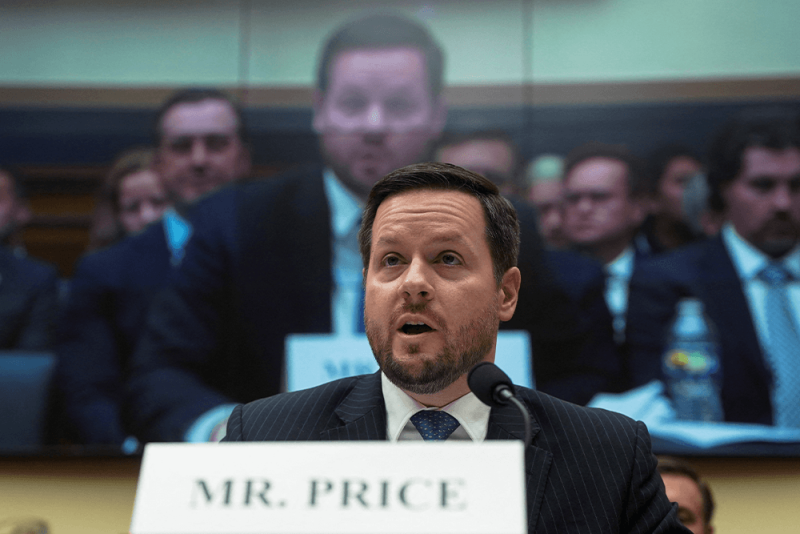
Critics of this view, however, contend that such laws target genuine harassment and harm rather than belief, and that claims of censorship often conflate accountability for unregulated hate speech with persecution.
Neil Datta, executive director at the European Parliamentary Forum for Sexual and Reproductive Rights, told Sojourners in a phone interview that what these actors are pushing for is “no-limit free speech,” treating anti-LGBTQ+ speech or hateful rhetoric as legitimate opinion while defending only their own right to speak.
This, he said, has been almost universally recognized as an impossible extension of free speech protections in Europe.
“Legislators, for example, have determined in different countries you cannot apologize for or defend Nazism, cannot incite hatred toward certain vulnerable groups, deny the Holocaust,” Datta explained, emphasizing that limits on speech exist to prevent escalation into violence—lessons drawn from historical tragedies in Europe, Rwanda, and Myanmar.
In the meantime, Datta’s concerns are heightened by the ways these actors have adapted to the modern media landscape. He points out that groups like CitizenGO, a Spain-based global advocacy platform, and the Mathias Corvinus Collegium, “long did not have access to the mainstream media.” But as traditional outlets declined, they turned to social and alternative media, gaining an early advantage in shaping public discourse. Today, this foothold has evolved into sophisticated digital campaigning.
The EPF’s Next Wave report underscores just how sophisticated actors who oppose gender-expansive identifications have become online. Spain’s CitizenGO and HazteOír—a Catholic group—along with similar organizations, have leveraged social media algorithms to amplify emotionally charged, polarizing content.
As the report notes, “anti-rights and religious extremist actors have made social media a strategic priority, developing sophisticated digital competencies to exploit the medium effectively … many now outperform progressive and mainstream actors across key platforms.”
Datta added that these groups can “weaponize social media, using algorithms to target certain groups and activate them to act in a desirable way,” amplifying polarizing content and restrictive gender narratives to millions, especially targeting young men and boys.
Giulia Evolvi, a researcher specializing in digital media, religion and gender, told Sojourners that CitizenGO sits at the intersection of Catholic activism and advocacy against expansive notions of gender identification. In an online interview, she said the organization “is part of [an] anti-gender, anti-abortion, pro-life activist network” with ties to international groups such as ADF and the European Centre for Law and Justice, as well as events like the World Congress of Families.
Evolvi emphasized that while CitizenGO presents itself as a secular platform, its campaigns carry “a very strong religious base,” reflecting a worldview in which “religious people are marginalized in a secular world” and fostering a sense of persecution among supporters.
CitizenGO’s strategy relies heavily on online petitions and coordinated digital campaigns rather than offline activism. Evolvi said the group “publishes petitions and coordinates actions transnationally,” reaching audiences across Europe, North America, sub-Saharan Africa, and Southeast Asia. Each petition is supported by targeted social media promotion on Facebook, Instagram, and even private Telegram channels.
In a recent petition on a CitizenGO site, directed at conservative political leaders like Italy’s Giorgia Meloni, Slovakia’s Robert Fico, and Hungary’s Orbán, they say the DSA is not a commonsense regulatory measure but a law that gives “unelected EU authorities unprecedented power to interfere in national matters, silencing dissenting voices and undermining public trust in democratic institutions.”
With such emotionally charged and populist petitions, creating a dichotomy between “the people and the powerful,” Evolvi said CitizenGO frames its opposition around both freedom of speech and religious liberty. She said followers feel, “they are having their freedom of speech—saying something homophobic—and then saying their religious freedom is being attacked.”
While petitions have yet to make much direct policy impact, Evolvi said they are highly effective at shaping public opinion and mobilizing individuals who may not even know the organization to begin with.
To counter this effective online strategy, Datta and the EPF advocate for proactive regulatory frameworks and strategic engagement in digital spaces, ensuring that online platforms are subject to accountability much like mainstream media. The goal, he said, is not to censor religion or opinion, but to prevent platforms from being used to amplify extremist messaging that threatens inclusion and public safety.
A 2023 study by the Max Planck Institute for Human Development led by researchers from the University of Exeter, Vrije Universiteit Amsterdam, and University of Bristol found that a majority of Europeans support limiting online speech, in particular if it was harmful and shared repeatedly.
Stephan Lewandowsky, co-author from the University of Bristol, wrote, “people by and large recognize that there should be limits to free speech … and that content removal or even deplatforming can be appropriate in extreme circumstances.” Jason Reifler of the University of Southampton added that ignoring broad support for these measures is actually what may risk undermining public trust.
To that end, Datta agrees with ADF International on one point: What happens in Europe may well become a blueprint for other countries.
“If Europe is able to put in place a framework that regulates hate speech online, it can serve as an example for other countries to follow,” he said.
And while advocates like ADF International and CitizenGO frame that as a threat, Datta thinks it’s good thing.
“If they can nip this in the bud in the EU, it may put increasing pressure on the U.S. to adopt a similar framework,” he said.
“If Europe is able to put in place a framework that regulates hate speech online, it can serve as an example for other countries to follow.” — Neil Datta, executive director at the European Parliamentary Forum for Sexual and Reproductive Rights
Got something to say about what you're reading? We value your feedback!
